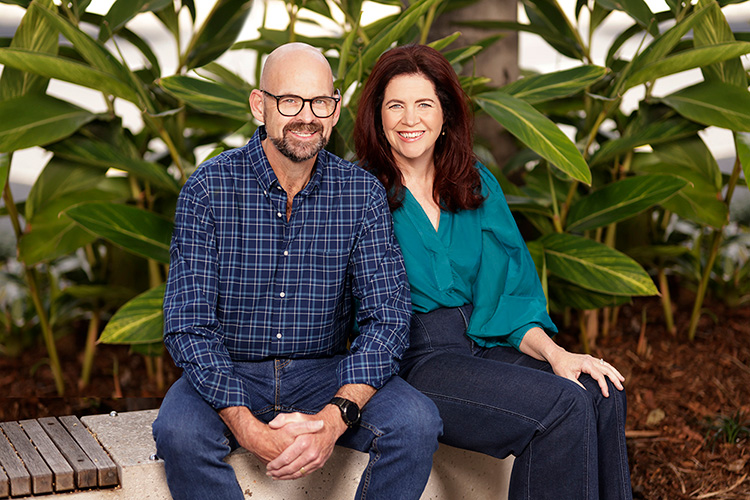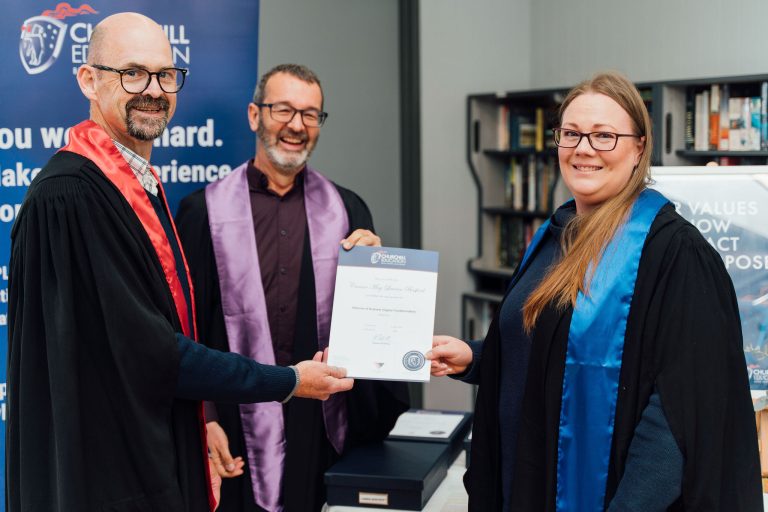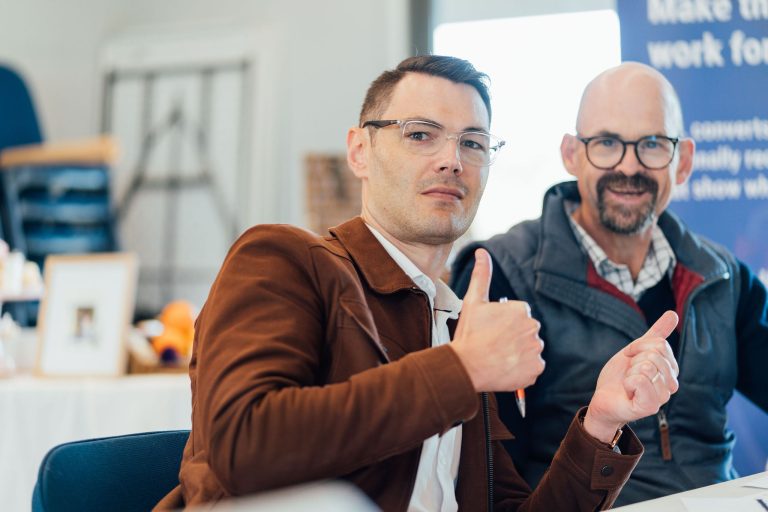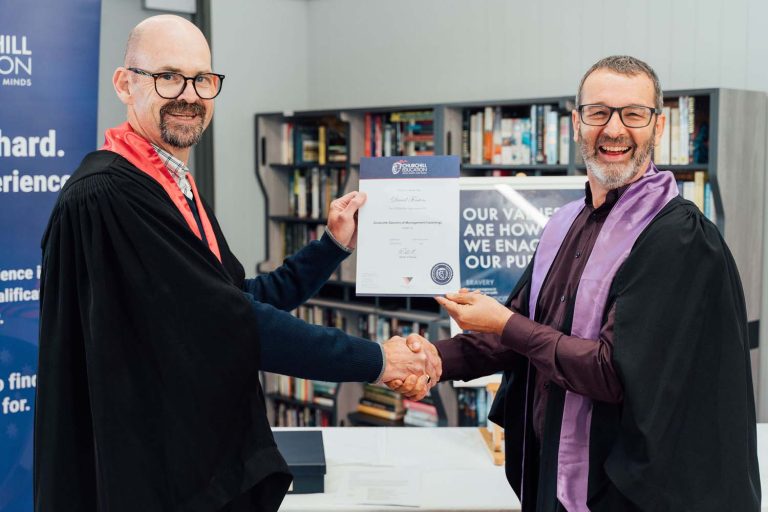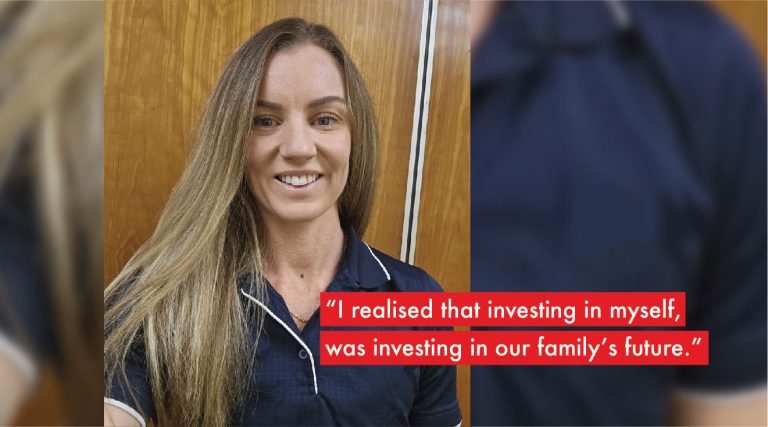Project Support Coordinator Cameron O’Neill is working towards a project management position with the help of recognition of prior learning (RPL).
Cameron recently returned to Churchill Education for his third round of RPL, seeking a Diploma of Project Management for future career progression. In the following story Cameron discusses the process of working with his employer and a Churchill RPL mentor to fill gaps in his knowledge and experience, in order to progress to the diploma level. This is a great example of the power of being a lifelong learner.
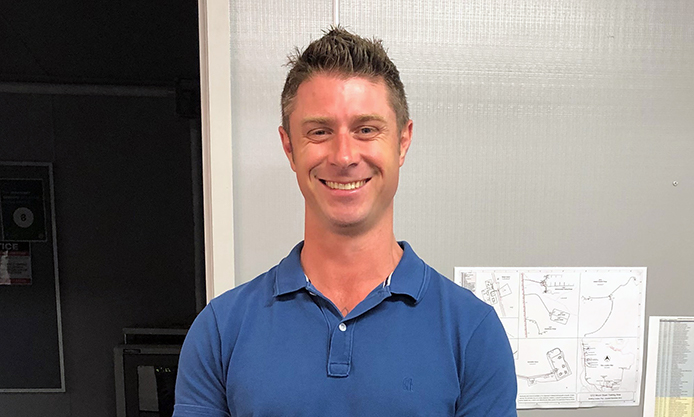
Listen to Cameron’s story on our podcast channel:
Cameron’s Career Background
Prior to project management, Cameron spent 13 years in the Australian Army. First in the Medical Corps and then in the Ordinance Corps before being medically discharged due to physical injuries.
Cameron then underwent a shoulder reconstruction and took some time off to recuperate.
Once he was ready to get back to work, he scored an entry level position with an established company that provides infrastructure and project management services into the defence industry.
On his second day he applied and was accepted for a project assistant role. From day one he was given projects to run and a steep learning curve. Cameron enjoyed the new challenge and all the new skills and knowledge he was quickly accruing.
Find out what you’re eligible for
Cameron had his sights set on a project management position that was coming up. The position required either 10-15 years of trades experience (which he didn’t have) or a Diploma of Project Management.
Having used Churchill Education twice in the past to gain qualifications through recognition of prior learning (RPL), he decided to get in touch again to see about a diploma.
Career Progression with RPL
Initially Cameron did not have enough experience to qualify for the diploma. Instead we gave him a breakdown of the units and capabilities he needed to evidence, and he worked his way through over the months that followed.
Cameron explains the process…
“Melody gave me all the units for project management that the RPL needs to tick off. And then it was just a matter of doing the work and making sure it was in accordance with all the units. Once I thought I had it all, I sent through all the information on the projects I had undertaken and completed. Then Melody and I had a Skype call. We went through the files that I had sent her, and then discussed how all the units applied to the work I’d been doing.”
Cameron says he was lucky to be thrown in at the deep end in his job, because it gave him plenty of opportunity to gather the experience and evidence required to progress to a higher qualification level.
Cameron was open with his employer about his ambition to progress with the company and this was met with a positive response. Cameron had a supportive boss who was keen to share knowledge and had seen the difference between Project Managers who had completed some studies as opposed to Project Managers who had supplemented their theoretical learning with hands on experience. He had a preference for the latter and was keen to see Cameron build his Project Management career with real life experience, not just text book learning. With his support, Cameron was able to really dig in to developing his project management skills and knowledge.
As we all know, there is nothing that can replace the opportunity to test the theory with the practical realities of a job. When we add the experience of a great mentor and a supportive work environment, the opportunities really start to flow.
Cameron’s Advice
We are always curious to know what advice our Alumni have for others who might be considering recognition of prior learning, or perhaps don’t know about it, but want to progress their careers.
Cameron says,
Melody’s Advice
We asked Churchill’s RPL mentor, Melody McNulty, who supported Cameron through this process for her advice about how to tackle any gaps in learning when you are looking to build that real life experience and use Recognition of Prior Learning to obtain your qualification.
Melody had 3 pieces of great advice to consider:
1. Determine your starting point for an RPL assessment.
As the old saying goes, you don’t know what you don’t know. And you may even be further along the RPL path than you realise. Ask for an initial RPL assessment so you can see where your gaps exist.
This then helps you work with an RPL mentor to develop a plan for the best way to develop your knowledge and skills in the missing areas.
2. Ask for Support in your Workplace
There is always someone who knows what you need to know and there are plenty of people willing to share their experience with you … if you just ask.
Sit down with your manager and explain that you are keen to learn and grow.
Even better, show them that you have identified some specific areas that you are wanting to develop in. Good managers will be impressed with you owning your professional development and appreciative of having a committed team member on their team.
So, ask for the support of your employer in giving you an opportunity to learn and grow professionally.
Find out what you’re eligible for
Cameron was very focused on his goal and as a hardworking fellow, he was always going to strive to achieve this RPL. By being open with his goals, Cameron had an employer that got onboard in sharing opportunities to extend Cameron’s learning.
It really is a win:win situation for the team member and the company.
3. Think of yourself as a Lifelong Learner
It is a mistake to think RPL is a quick path to achieving your qualifications.
In fact, whilst Churchill Education makes the actual RPL Assessment process simple and time effective for our clients, the learning that our clients have done in the workforce to achieve these qualifications has spanned years.
I believe the true beauty of Recognition of Prior Learning lies in what it reflects about the recipient: these are people who stay in learning mode. They don’t just sign on to a quick course and tick a box on the theory. They are lifelong learners balancing what they build up in knowledge with the hands on skills of real life application.
Cameron is a great example of being a Lifelong Learner. He continues to build qualifications in his professional portfolio and commit to the next area of learning.
The best team members are always lifelong learners, always willing to learn something new.
And that is where Recognition of Prior Learning goes hand in hand with recognising you as you learn and grow professionally.
A true RPL mentor will work with you over time to ensure you continue to get the recognition you deserve.
I admired Cameron’s dedication and look forward to following his next career steps!


